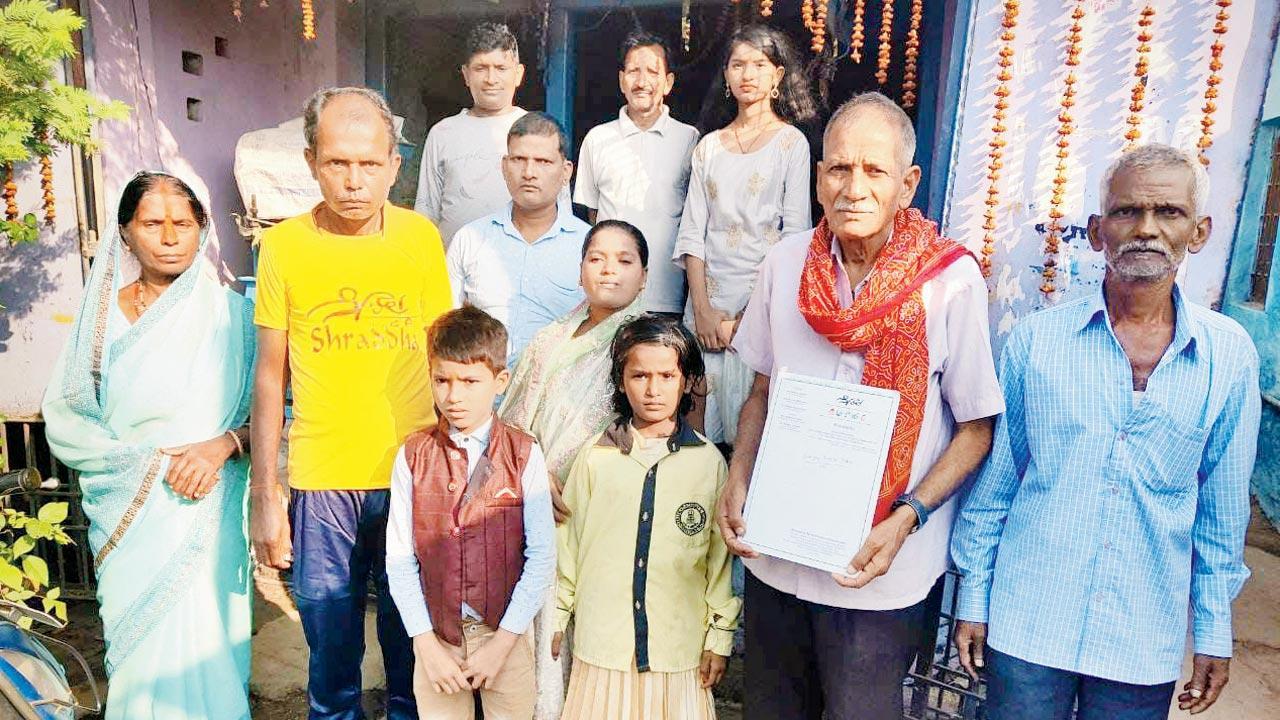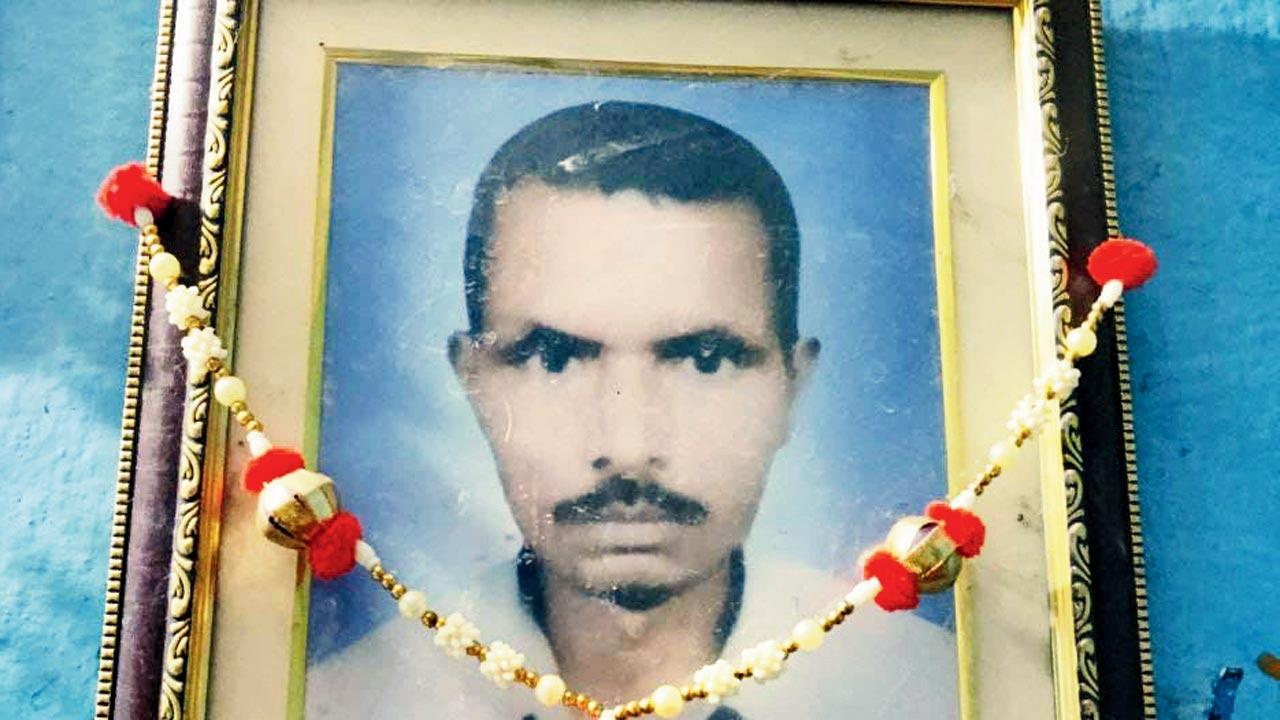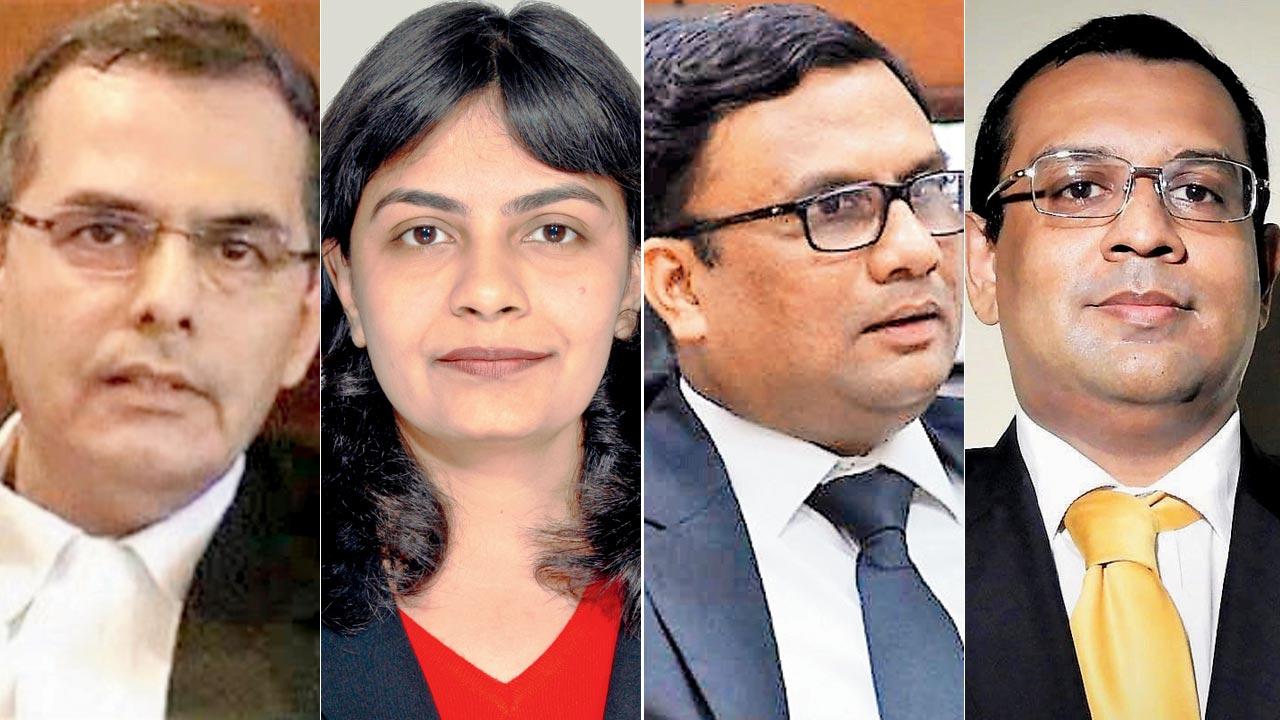Legal brains say burden to prove vitality is on individual who was declared dead, cancelled ID proofs must be revived immediately

Sanjay Kumar (in yellow T-shirt) with his family at his Patna residence
The mid-day report ‘Mentally ill homeless man ‘returns from dead’’, dated November 2, has raised a question: what are the legal rights of a living person once he is declared dead on paper? mid-day spoke to constitutional experts who shed light.
ADVERTISEMENT
Advocate Floyd Gracias, Supreme Court counsel, said, “The peculiar case raises serious legal ramifications as to the effect of such a death certificate and the impact on the person concerned. Section 15 of the Registration of Births and Deaths Act, 1969 provides for the cancellation of a death registration on account of erroneous entries. In this case, the death certificate ought to be cancelled immediately. However, the validity of any acts done on the basis of the death certificate would become a cause for concern and the validity of such acts would become questionable. The investigation agencies ought to have done due diligence in the matter before closing a report under Section 174 of the Criminal Procedure Code. The corporation would have issued the death certificate based on such a report. The prime concern here is how the rights of such a person are secured in such cases. A death certificate means the determination of the life of the person. However, as the person is alive, the question being discussed is his legal status and rights arising subsequent to his discovery.”
Also read: Mentally ill homeless man ‘returns from dead’
 A portrait of Sanjay Kumar that his family made after he was presumed dead
A portrait of Sanjay Kumar that his family made after he was presumed dead
“It is paradoxical for such a person to claim the Right to Life under Article 21 of the Constitution. If he is declared dead, he would technically have no rights in law. His legal proof would be de facto expired/revoked and therefore such a person, though living, will have no legal identity,” said Gracias.
Jamshed Mistry, senior advocate, Bombay High Court, said, “There is an urgent and immediate need for a series of guidelines issued by the government to various authorities since the entire process of bringing a dead man to life has to be put in place. Although Sections 107 (alive till dead) and 108 (presumed dead till proven alive) as per the Indian Evidence Act, the burden is on the dead man to prove through various documentation that he is alive. His vital proof such as bank passbook, passport and voting card—which would have stood cancelled—need to be revived immediately for his day-to-day needs. Even in western countries, the procedure is that the social security number of such people is first revived, which then automatically triggers the revalidation of all other important documents. A similar system could be considered in India too.”
 Jamshed Mistry, senior advocate, Bombay High Court; Stuti Galya, solicitor, Shreeprasad Parab, constitutional expert and Floyd Gracias, Supreme Court counsel
Jamshed Mistry, senior advocate, Bombay High Court; Stuti Galya, solicitor, Shreeprasad Parab, constitutional expert and Floyd Gracias, Supreme Court counsel
Advocate Shreeprasad Parab, a constitutional expert, said, “Such a person can file a declaratory suit in court with a plea to declare him alive. The suit may be filed by incorporating facts about his whereabouts during the period he was missing till date. DNA report of the person may also be given. If the person is currently of unsound mind, the declaratory suit may be filed by the next friend/guardian as per the provisions of Order 32 of the Civil Procedure Code, 1908.”
He added that “The above provisions are enacted by considering the Constitutional Provisions of Equality under Articles 14 to 18 of our Constitution. Article 21 states that no person shall be deprived of his life or personal liberty except according to procedure established by law. The Supreme Court has extended the interpretation of Article 21, as political, social and economic changes entail the recognition of new dimensions.”
According to solicitor Stuti Galya, “Section 15 of the Registration of Births and Deaths Act, 1969 provides powers to the registrar to correct or cancel an entry in the register of births and deaths if it is proved to his/her satisfaction that any entry of a birth or death in any register kept by him/her under the Act is erroneous in form or substance, or has been fraudulently or improperly made. Since typically the registrar will be reluctant to make the entry, without official court orders, an application will need to be submitted to the jurisdictional metropolitan magistrate court along with an affidavit, all factual details and documentary evidence.”
She added, “The registrar will then make suitable rectification/cancellation, on receipt of relevant orders from the magistrate court. In case, if the relevant municipal office still refuses to cancel the death entry, the person concerned can file a writ petition in the high court directing the registrar to cancel the death certificate and the relevant entry.”
15
Section of Births & Deaths Act that allows to cancel registration
 Subscribe today by clicking the link and stay updated with the latest news!" Click here!
Subscribe today by clicking the link and stay updated with the latest news!" Click here!







